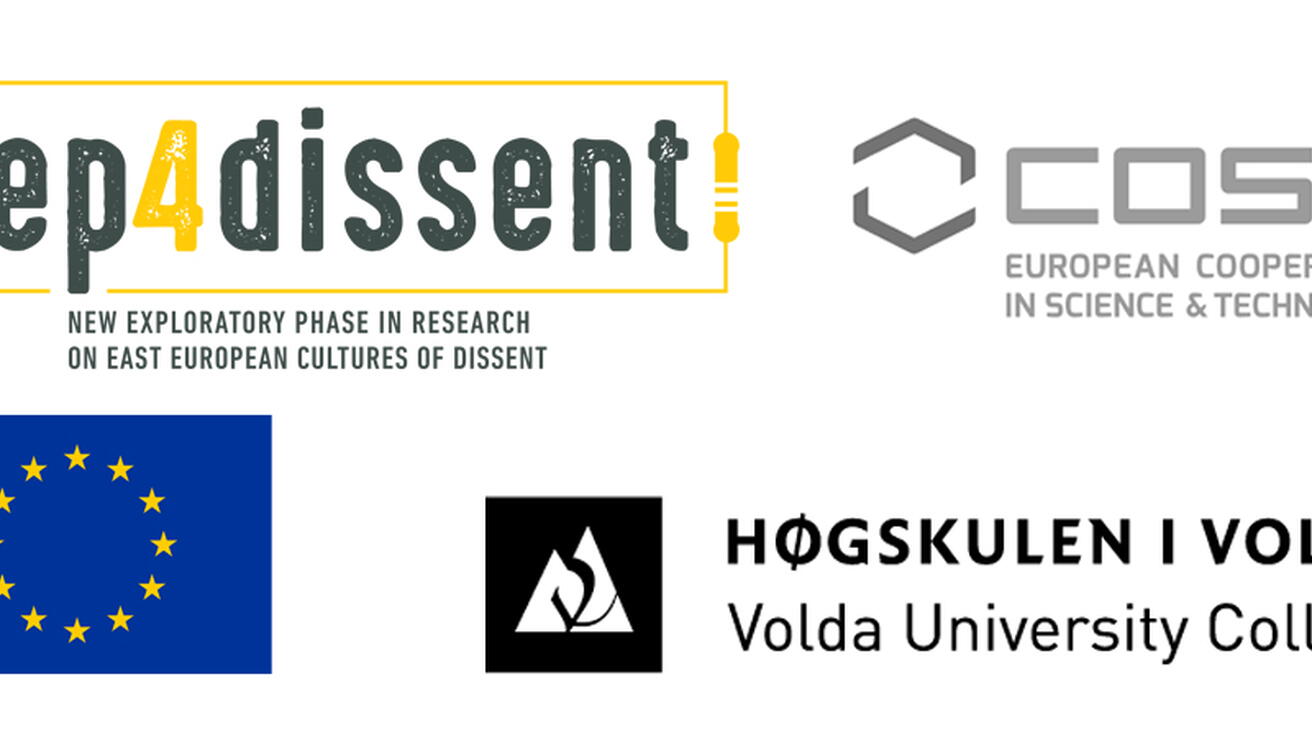EU Research Seminar at Volda University College
Monday 16th and Tuesday 17th of September researchers from all over Europa will attend the training school/seminar «Dissenting forms of animation and film in socialist Europe 1945–1989» at Volda University College.

Monday 16th and Tuesday 17th of September researchers from all over Europa will attend the training school/seminar «Dissenting forms of animation and film in socialist Europe 1945–1989» at Volda University College. The seminar is funded by the EU research program Cost Action, and is localy organized by the Faculty of Media and Journalism. The event is part of the Faculty’s international research cooperation and network. Students and other interested are also welcome in the audience.
As a training school of the research project COST Action: New Exploratory Phase in Research on Eastern European Cultures of Dissent (NEP4Dissent), this two-day seminar aims to reflect on various forms of dissent in film and animation during socialist Europe in the period between 1945 and 1989.
Following the establishment of the ‘people´s democracies’ in Central and Eastern Europe after World War II, Lenin´s original dictum about film being the most important art brought positive change in terms of the infrastructure for film production: the establishment of film schools or academies based on the model of Moscow´s famous VGIK, the first state film school in the world.
Czechoslovakia (Prague 1947), Poland (Łódz 1948), Romania (Bucuresti 1950), Bulgaria (Sofia 1948), Hungary (Budapest 1948) and GDR (Potsdam 1954) all got their state film schools following this model, and similarly Yugoslavia (Belgrade 1948). The idea was, of course, that film was considered a primary propaganda medium and as such, it was necessary to secure responsible/reliable ‘cadres’ to take care of masses’ education. The national film industries were also based on the Soviet model, the idea being that film, as a powerful propaganda medium, should be under strict control.
As film is a medium that, for technological reasons, lends itself to control, the question of ‘dissident film’ within this structure would seem to be nearly impossible. Nevertheless, it is possible to detect attempts in this direction both within the established film industry, in the discourse around film culture and in attempts of alternative amateur film making.
The seminar aims to present various forms of dissent, both within and outside of the strictly controlled film industry in the states of the Soviet sphere of influence. The first day of the seminar will be dedicated to the role of animation film, while the second day reflects on live-action film in this very context. There will be film screenings.
Keynote speaker is the Estonian film director Hardy Volmer, presenting «Artist between underground and upperfloor in ESSR». In the program you will also find Sean Homer, Associate Professor of Literature at the American University in Bulgaria, Dr. Tomáš Glanc, Senior Fellow at the Zurich University, Professsor Emeritus Bjørn Sørensen at NTNU and Professor Emeritus Gunnar Strøm at Volda University College.
This seminar is part of the Cost Action-program «New Exploratory Phase in Research on Eastern European Cultures of Dissent», a program supported by the European Union. In the Management Committee is Professor dr. Rolf Werenskjold from Volda University College, Faculty of Journalism and Media, as one of two Norwegian members appointed by The Research Council of Norway. He is also member of the Core group in the program. Volda University College, Faculty of Media and Journalism, has got three participants in the Cost Action-program: Burcu Sabuncuoglu, Thomas Lewe, and Endre Eidså Larsen.
The Cost Action-programs are important professional networks within the EU and the program includes researches from more than 30 countries.
When: 16th–17th September 2019
Where: BK 159
Link to the program






